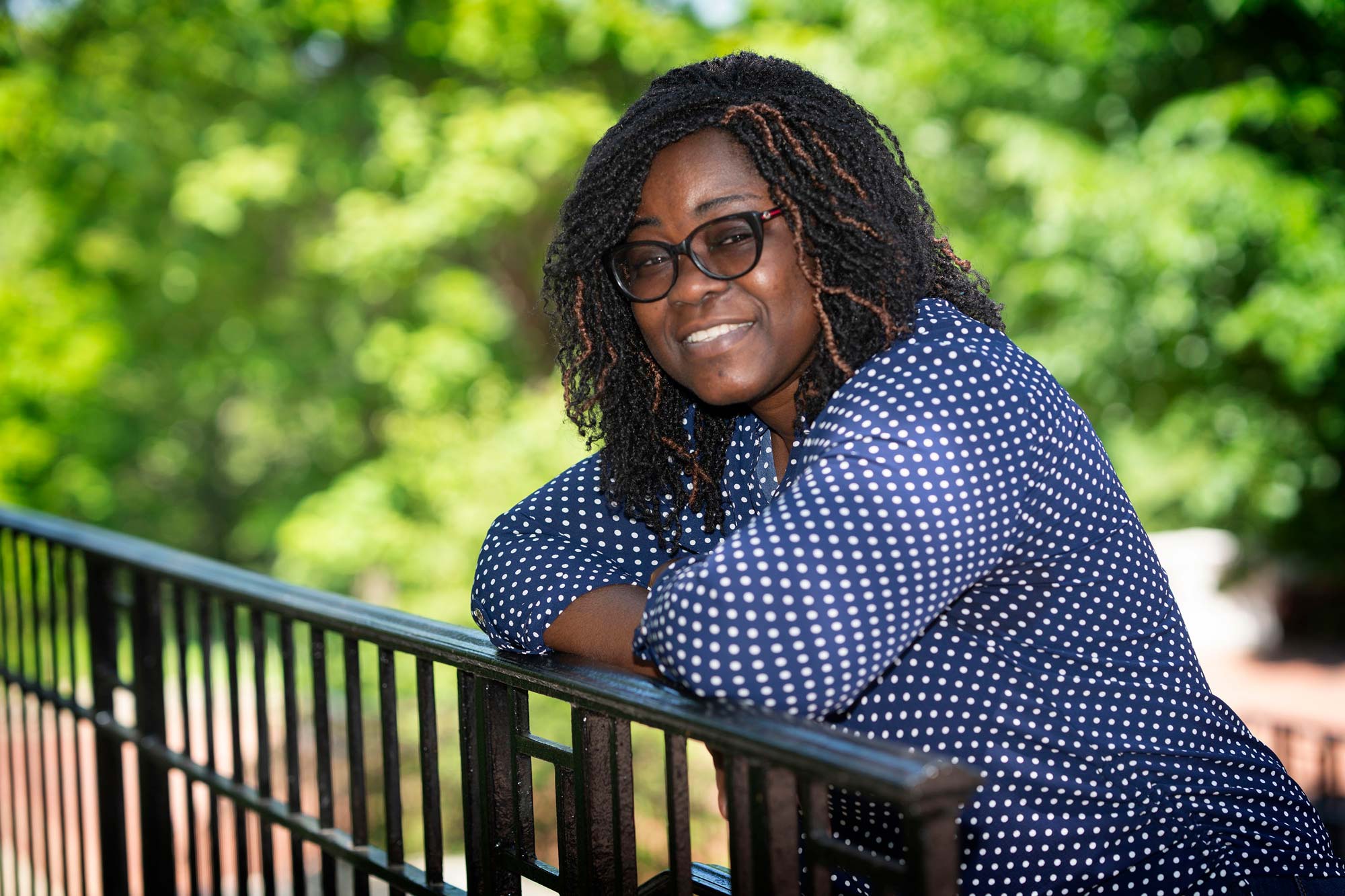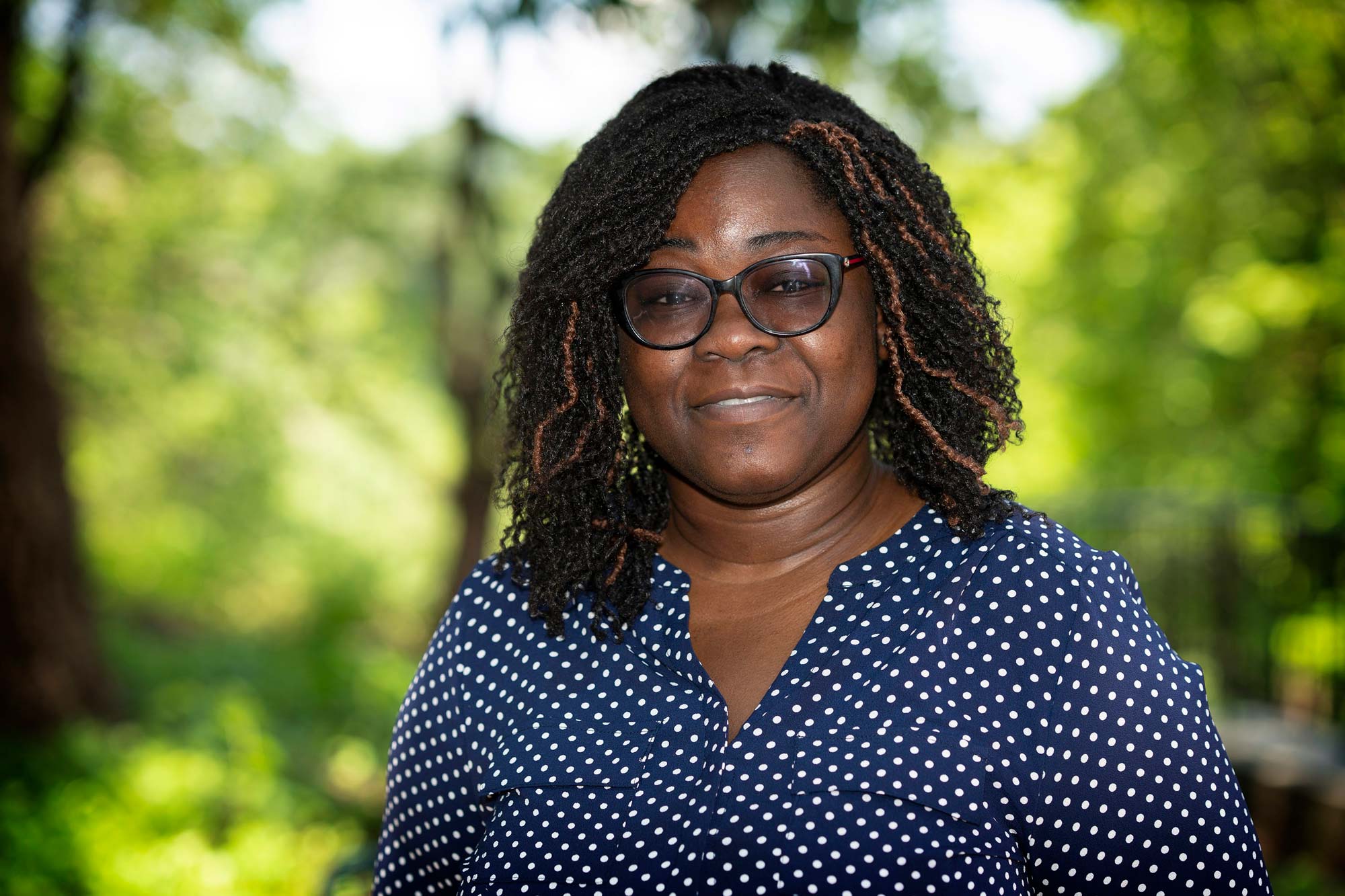“I am still trying, but I think I seriously started to imagine that I could be a writer in 2013 after I attended the FEMRITE writer’s residency in Uganda.” [FEMRITE is an organization that supports and publishes African women writers.]
About creative writing, she said, “I am curious about the human mind, our psychological makeup – patterns of thoughts, feelings, desires, and behaviors that make a person. I think about how life begins, when the time comes you are either pushed or pulled out, after which so much more happens beyond your control, yet at some point, you need to take charge of your life and shape it. How do you do that? Where do you learn to do that in a way that doesn’t destroy you? So, I watch my characters create themselves through the decisions they make in response to their peculiar circumstances.
“I am also interested in what exists beyond this physical realm – the inexplicable things of life.”
When it comes to writing, Boateng said she usually sees “a character or an image first, and then I follow it as it grows into a story. For this novel, I saw Brema as a little girl playing football with a group of boys and she has stayed with me, revealing different aspects of her life up to her adulthood.”
Boateng submitted the first chapter of this unpublished novel, “Honey-Headed,” about Brema, to the Henfield Prize competition. Judging is anonymous and the judge is not revealed until the award is announced in May.
This year’s judge, Alexandra Kleeman, who teaches at The New School and published her latest novel, “Something New Under the Sun,” last year, was impressed with Boateng’s writing prowess: “Sinewy in its phrasing and vitally attentive to the living, electric quality of Brema’s inner longings and aversions, this chapter brims with urgent feeling, unfurled with patience and grounded in startling particularities such as the flavor of clay and the presence of sunlight cast on a wall.
“I found myself marveling at Boateng’s ability to capture the compulsive, melancholy solitude of the body, and the twisting, roiling, shape of her characters’ wants. It’s a thrill to see a writer taking risks while maintaining that life-giving link to character, emotion, viscerality: this text left its fingerprints all over my heart.”
Here is an excerpt from that first chapter where the main character Brema, who is pregnant and questioning what she really wants in her current life, has fainted, and her boyfriend Abdul has taken her to the hospital.
… Abdul draws closer to Brema to hold her hand.
“Is everything okay?” he asks.
“Well, your babies are fine. We have two strong heartbeats here.”
Brema’s egg has split, making a girl and a boy.
Abdul squeezes Brema’s hand. He cannot believe the brook of joy that rushes through his chest.
“Thank you, Jesus!” he cries.
“Look,” the doctor points to the screen, “that’s the girl and that’s the boy. Congratulations!”
Brema’s eyes well up, she doesn’t want any of this, she is terrified, she needs help for her constipation problem.
“Your wife’s Hb level is dangerously low; she needs blood immediately.”
“I can donate, I’ll donate,” Abdul says, clutching his chest for the joy to remain still.
“Okay, good. Are you the same blood type?”
Abdul pulls on his camera strap, his mouth empty of words. He’s frightened by how little he knows of someone he’s sure he loves. Brema turns her body to face the wall, drunk on silence, a house being eaten by termites. She could have been discharged, after her four-hour-long blood transfusion, but given that she has no prenatal records, is experiencing shortness of breath and has an unstable chest pain, the doctor doesn’t trust that sending her home right away is the best decision. He doesn’t think Brema will follow his recommended 24 to 48 hours of rest. Brema still hasn’t told the doctor about her constipation problem; her appetite loss; her restless sleep. The antiseptic blend wafting through the hospital air is unbearable, but the doctor has decided to keep her detained, to observe her for two more days and Brema complies.






